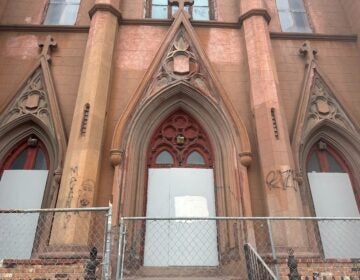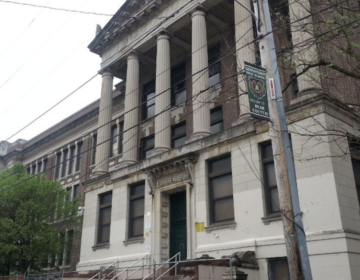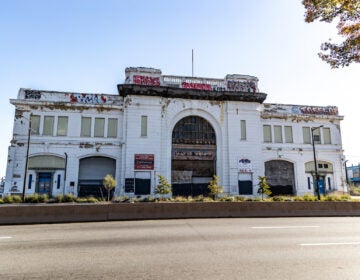New day dawns for the ZBA
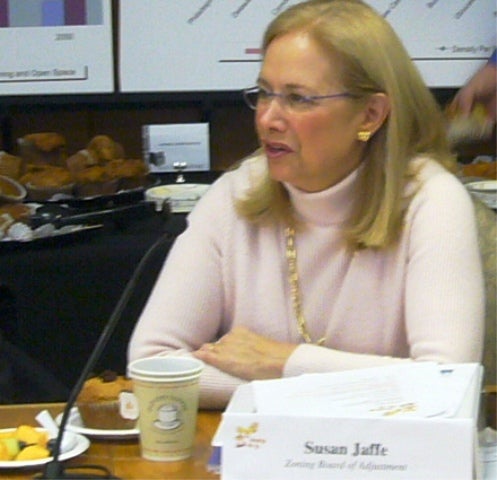
Previous ZBA coverage
Jan. 29, 2008
By Thomas J. Walsh
For PlanPhilly
After years of stormy public relations and accusations of foggy decision-making, the newly appointed chairwoman of the Philadelphia Zoning Board of Adjustment is signaling a change in the weather.
“I think that probably the first thing we’ll work on is changing the style and the climate of appearing before the zoning board, and we started to do that pretty well,” said Susan O.W. Jaffe, who returned to the board she served on for 12 years, after an absence of seven. Jaffe will also serve on the newly formed Zoning Code Commission.
Appointed by Mayor Wilson Goode in his second term, she was vice chair of the ZBA for much of her previous tenure, which stretched through the Rendell administration and the first year of Mayor John Street’s first term.
She was invited back for the top position after Mayor Michael Nutter promised to overhaul the board, as well as the Philadelphia City Planning Commission and other municipal authorities. The plan calls for revising what he calls the city’s “antiquated” zoning code, but a more short-term action calls for the board to pare down the zoning appeals process.
Just how the board will go about this “streamlining” is not yet clear. But the issue of “climate” is clearly the first measure being taken. For starters, it’s an intangible that does not require City Council’s approval.
Jaffe would not go into specifics until they are approved by the mayor, but she said that she would also like to introduce tools for zoning applicants that will provide a blueprint for adjusted or appealed zoning.
The big developers know what to expect, she said, or at least their lawyers do. But most homeowners who seek the board’s approval for an addition, a sun deck or a swimming pool have never seen a hearing and have no idea what they’ll encounter. Given the city’s – and the board’s – reputation for wrapping things up in red tape, she said, that makes for a public that dreads the experience.
“I want people to feel that we are there to help them, to serve them, and that this is not to be an unpleasant experience,” Jaffe said, just a day after the board’s first meeting. “We will try and make it a process that is not intimidating, but helpful for the citizenry.” (The ZBA will conduct special hearings Wednesday from 1-5 p.m.)
An air of friendliness seemed to be in evidence at the Jan. 23 afternoon hearings. Jaffe conducted them with low-key aplomb, employing a calm, pleasant demeanor. She asked applicants to “please send a letter” or to detail small changes for their plans there and then, so they would not have to waste time by appearing before the board again. No voices were raised in the first session of hearings. No one was abruptly cut off from speaking further, a common occurrence with the former board.
“The zoning board looks like a pretty good group,” said Walt D’Alessio, a commercial real estate executive and longtime Philadelphia economic development power broker. “Susan is one of the bright lights. And they have work to do now.”
Breaking the code
As part of a 10-page outline for reforming the Planning Commission and the zoning process, Nutter said the Zoning Board of Adjustment had “become a de facto planning process,” where basic tenets of the zoning map were routinely contested by developers. The board was making decisions on a parcel-by-parcel basis, he wrote, “rather than as part of a coordinated and open public process. The zoning appeals process was never meant to substitute for planning and the [zoning board] membership does not include planning or design professionals.”
For good measure, the outline said that variance decisions under the Street administration were “an unpredictable, ad hoc process that developers try to avoid.”
All four new board members (see below) deferred comment about changes – or any matter concerning the zoning board – to Jaffe, who said they were trying to present a united front with regard to public comment, especially after a tumultuous end to the tenure of former chairman David Auspitz.
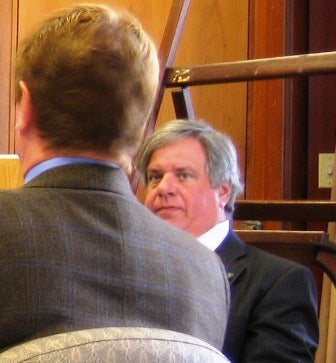
Jaffe would not comment on the board under Auspitz, except to say that those who served cared about the city and meant well. She did not attend any hearings after her departure from the board. Auspitz and others responded to Nutter’s accusations by saying that any irregularities in the appeals process were caused mainly by the decades-old, byzantine zoning code.
It’s early
Keeping order and dealing quietly and efficiently with a Somerton homeowner’s request for an addition is one thing. Dealing with commercial developers and thornier issues such as waterfront re-use and the re-zoning of industrial sites is another. On whatever scale, public or private, fair and predictable dealings with the zoning board will reverberate throughout the city’s planning and building processes, said Steve Wray, executive director of the Economy League of Greater Philadelphia.
“For developers, predictability lowers costs by shortening the development process and makes investing in Philadelphia more attractive,” said Wray, in an email. “Even with the ten-year tax abatement, Philadelphia remains a high-cost location to develop. Having clear rules and expectations for development means avoiding lengthy and costly legal proceedings and architectural re-designs.”
In the short- or mid-term, Wray said, there could be a possible slow-down in activity as commercial developers adjust to new zoning regulations. But in the long-term, he said, new investors will be attracted to a more stable development environment.
The zoning board itself must be ready to make adjustments, as the new city zoning code emerges, said Jaffe. In the meantime, there’s no reason to be frightened about seeking a variance anymore in the city of Philadelphia.
“I like to say that the best zoning board hearings are part judicial proceeding and part town hall meeting,” Jaffe said. “At its best, that’s the way a zoning board should function.”
Along with Jaffe, the new board consists of:
• Anthony Lewis, Jr., CEO of the Housing Association of Delaware Valley and a member of the city’s Fair Housing Commission
• Joseph Manko, founding partner of Manko, Gold, Katcher & Fox, LLP, member of the Fairmount Park Commission and chairman of the board for the Pennsylvania Infrastructure Investment Authority
• Lynette Brown-Sow, vice president for marketing and government relations at the Community College of Philadelphia, former deputy mayor under Mayor Rendell and a Planning Commission veteran
• Carol Tinari, managing director for NVT & Associates, member of the License and Inspection Review Board, Overbrook Farms community leader, member of the Pennsylvania Commission on Crime and Delinquency and a Girard College board manager
The reporter can be contacted at thomaswalsh1@gmail.com
WHYY is your source for fact-based, in-depth journalism and information. As a nonprofit organization, we rely on financial support from readers like you. Please give today.




